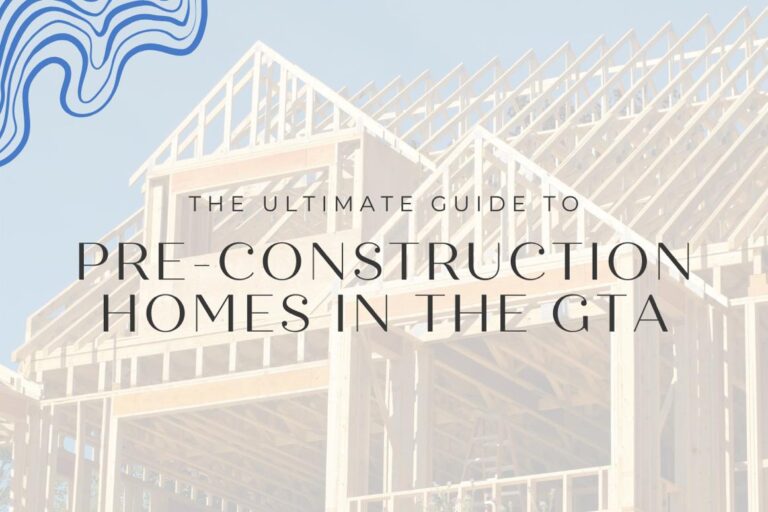Investing in a pre-construction home in the Greater Toronto Area (GTA) can be an exhilarating journey, offering a blend of anticipation, excitement, and, admittedly, a bit of complexity. Whether you’re a first-time homebuyer, an investor, or someone looking to upgrade your living situation, understanding the nuances of pre-construction homes is crucial. This comprehensive guide aims to demystify the process, highlighting the benefits, timelines, and key considerations buyers should expect.
Why Invest in Pre-Construction Homes in the GTA?
1. Early-Bird Pricing: One of the most enticing aspects of pre-construction homes is the potential for early-bird pricing. Developers often offer units at a lower price during the early stages of the project to attract initial buyers and secure financing. This can translate into significant savings and a higher return on investment as property values increase.
2. Customization Opportunities: Buying a home before it’s built allows for personal touches. Depending on the developer and the stage of construction, buyers can often choose finishes, layouts, and other details, making the home truly theirs from the ground up.
3. Modern Living: Pre-construction homes are built with the latest designs, materials, and building standards. This means newer homes are more energy-efficient, come with modern amenities, and are designed with current lifestyles in mind.
Understanding the Timeline
The pre-construction process can vary greatly in length, typically ranging from 1 to 5 years. Here’s a simplified timeline:
1. Reservation and Agreement: Once you’ve selected a unit, you’ll reserve it with a deposit and enter into an agreement of purchase and sale. This agreement outlines all critical aspects of the purchase, including pricing, deposits, and timelines.
2. Cooling-Off Period: In Ontario, buyers of new homes have a 10-day cooling-off period. This time allows you to review your decision, obtain financing, and consult with a lawyer without penalty if you decide to back out.
3. Construction Phases: Construction will progress through several stages, from excavation and framing to interior finishes. Depending on when you purchase, you might wait through the entire process or just the tail end.
4. Interim Occupancy: There may be a period where the building is habitable but not yet registered with the municipality. During this phase, you can occupy the unit but do not officially own it, paying an occupancy fee instead of a mortgage.
5. Final Closing: Once the building is registered, the final closing occurs. You’ll pay the remainder of the purchase price, and the property’s title will be transferred to you, marking the official ownership change.
What to Expect Throughout the Process
1. Incremental Deposits: In addition to the initial deposit, you’ll likely make incremental payments. These are typically structured in stages and contribute towards your down payment.
2. Adjustments and Closing Costs: Be prepared for additional costs at closing, such as development and education levies, utility hookups, and Tarion warranty fees. These can add up, so it’s essential to budget accordingly.
3. Construction Delays: Delays are not uncommon in construction projects. Flexibility and patience are vital, as timelines can shift due to various factors like weather, labor, and material shortages.
4. Final Inspection: Before final closing, you’ll have the opportunity to inspect your unit. This is your chance to identify any issues that need to be addressed by the developer.
Conclusion
Investing in a pre-construction home in the GTA offers a unique opportunity to enter the real estate market, often at a more accessible price point and with the chance to tailor the home to your preferences. However, it requires due diligence, a good understanding of the process, and a bit of patience. With the right preparation, buying a pre-construction home can be a rewarding investment, securing your place in one of Canada’s most dynamic and desirable real estate markets.


